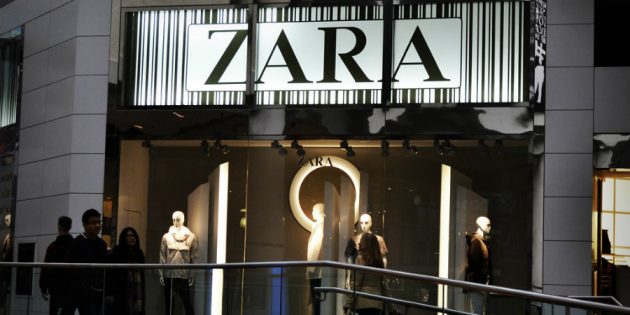Propaganda may fool the most convinced, but money rarely fools: 770 days after an invasion that was supposed to last three days, the Kremlin now faces a new problem. The “Special Military Operation” opened a front for tens of thousands of deaths, destroyed armored vehicles, burned oil refineries, and destabilized internal security after the terrorist attack on the outskirts of Moscow: but the danger now comes from the textile empire under the command of the Spanish “Special Military Operation” Marta Ortega.
Two years after closing the curtains, Inditex has reopened 20 of its 84 stores in Ukraine. During this period the company continued to pay the salaries of its 1,000 employees and maintained most of the facilities through agreements with the owners. At the same time, it eliminated one of its most profitable markets: on March 5, 2022, Inditex announced the closure of its 500 stores in Russia, where it generated 8.5% of its operating profit.
Even as the door opens to a future return to Russia, the message left by the reopening in Kiev appears more powerful.
If one of the main groups in the fashion industry, which increased its net profits by 30% in 2023, is convinced to return to Ukraine, it means there is work, but above all, Putin's initial plan to get Kyiv out of the attack. The Spanish newspaper El Confidencial said: “The overthrow of the Nazi regime” was now a utopia.
But it is not the only big company returning to Ukraine: McDonald's got the help of Anthony Blinken, US Secretary of State, to return six months after the start of the war. Since then, many other multinational companies have returned to Ukraine.
Inditex CEO Oscar Garcia confirmed last year that “if the situation changes” they could return to Moscow. Currently, the company has transferred the business to the Emirati Daher Group, which is managed by three Lebanese brothers who are responsible for distributing Zara in several countries in the Middle East. Zara Russia became Zarina, largely imitating the Spanish line, although the clothing and economic results are far from similar.
Zara's return to Kiev, on the second floor of River Mall, Kiev's largest shopping center on the eastern bank of the Dnieper River, was welcomed by Ukrainians, who were longing for new signs of some normalcy. “Even on Black Friday, the stores are not so crowded!” one of the workers explained to the Spanish newspaper: Tetyana returned to Ukraine after fleeing to the West, to continue her life. Now he runs from place to place helping customers and folding clothes.
It is the nature of war to advance at different speeds. 600 kilometers away, Russia is attacking sites in Donbass, and the Ukrainian army continues to raise funds to alleviate material shortages. The differences between the two worlds are growing, and the fear of another disconnect between combat zones and the rest of the country afflicts many soldiers who until two years ago were civilians.

“Wannabe internet buff. Future teen idol. Hardcore zombie guru. Gamer. Avid creator. Entrepreneur. Bacon ninja.”

